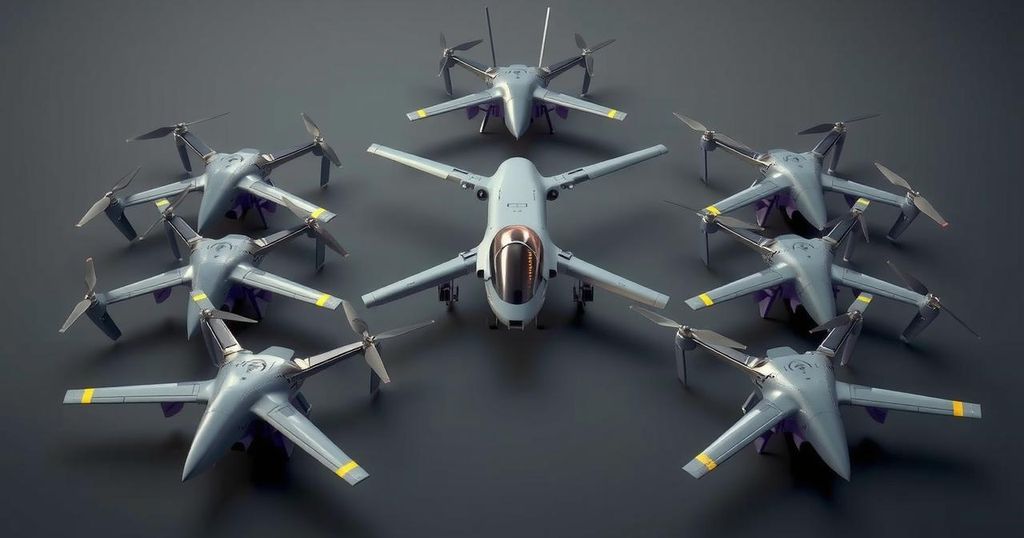North Korea’s Expansion of Military Drone Exports to U.S. Adversaries

North Korea is reportedly preparing to export military drones to U.S. adversaries like Iran, amid intensified production directives from Kim Jong Un. Despite international sanctions, North Korea is adopting clandestine tactics for drone shipments to multiple regions, particularly targeting Iran, Syria, and Russia. A potential impact on international enforcement mechanisms is anticipated due to geopolitical shifts.
Recent reports indicate that North Korea is set to export military drones to various adversaries of the United States, including Iran and its allied forces. This surge in drone production occurs despite enduring international sanctions designed to impede North Korea’s arms trade. North Korean leader Kim Jong Un has expedited this process, emphasizing the need for full-scale production as a strategic initiative to bolster alliances and generate foreign revenue.
As of March 7, North Korean officials commenced inspections on drones earmarked for export, with successful candidates designated for immediate dispatch. Potential recipients listed include Iran, Syria, the Houthi rebels of Yemen, militant factions across Africa, and potentially Russia. These drones, which encompass reconnaissance and loitering suicide unmanned aerial vehicles, are being manufactured in North Pyongan Province.
To maintain discretion in these operations, North Korea has devised intricate methods to avoid detection. Notably, components of unmanned aerial vehicles (UAVs) are reportedly shipped separately through varied routes, allowing for assembly upon arrival—a tactic historically utilized in their weapons export strategies. Additionally, transactions are often conducted using cryptocurrencies to further obscure financial trails, leveraging front companies in other jurisdictions to complicate payments.
Vann Van Diepen, a former weapons of mass destruction expert with the U.S. State Department, provided insight into North Korea’s competitive stance: “As with other conventional weapons, Pyongyang might try to compete on price, but it is unclear if it would be able to charge much less than other non-Western suppliers with established production lines.”
The implications of these developments on international relations remain uncertain. The United Nations and its affiliates, including the United States, will likely need to deliberate on their response to these shipments. Notably, Russia’s prior actions to dissolve the U.N. sanctions review panel may reduce scrutiny and facilitate North Korea’s arms export initiatives.
In summary, North Korea aims to enhance its military drone production and export capabilities, targeting nations such as Iran, Syria, and possibly Russia, despite international sanctions. The methods employed to evade detection and trade restrictions raise significant concerns regarding the geopolitical landscape and international enforcement measures. The responses from governing bodies, particularly with Russia’s influence on sanctions, will likely play a crucial role in curbing or facilitating these actions in the future.
Original Source: www.newsweek.com







